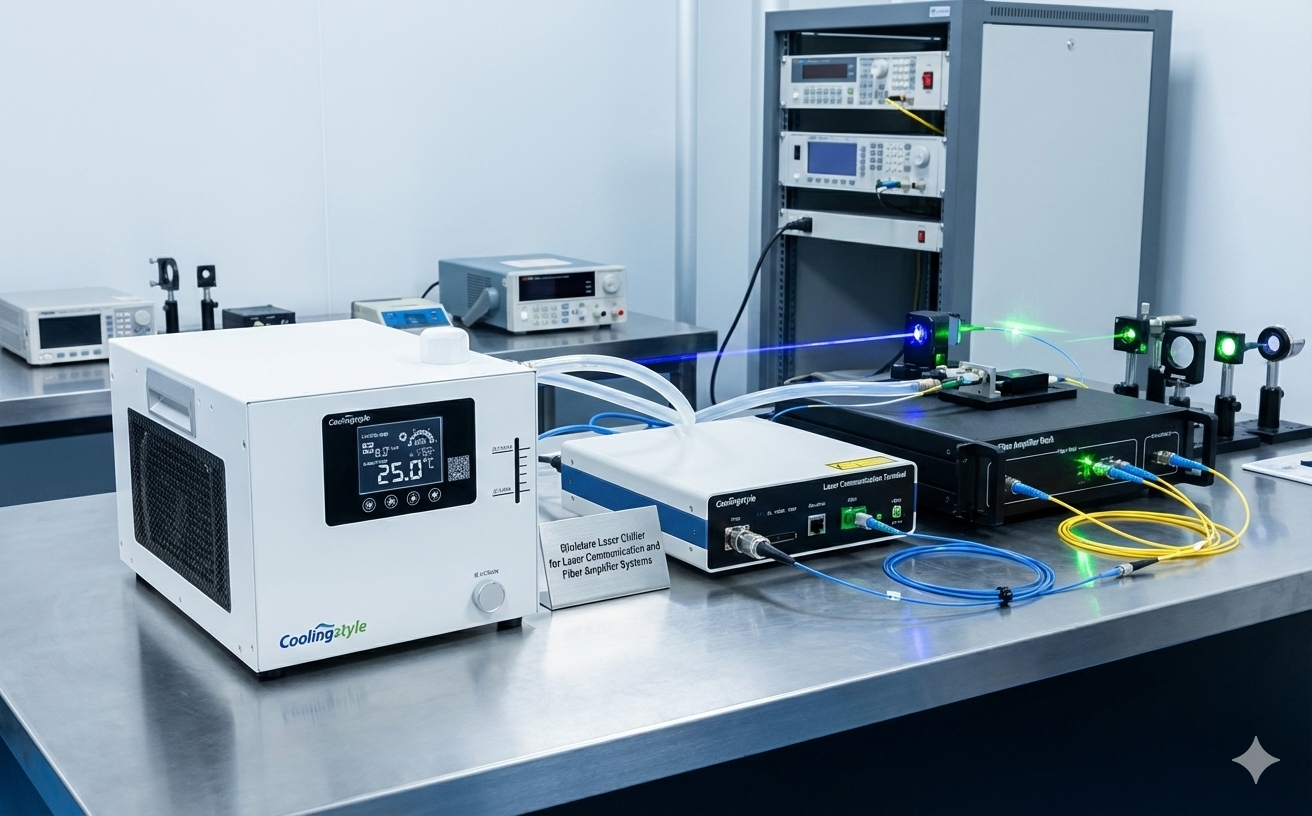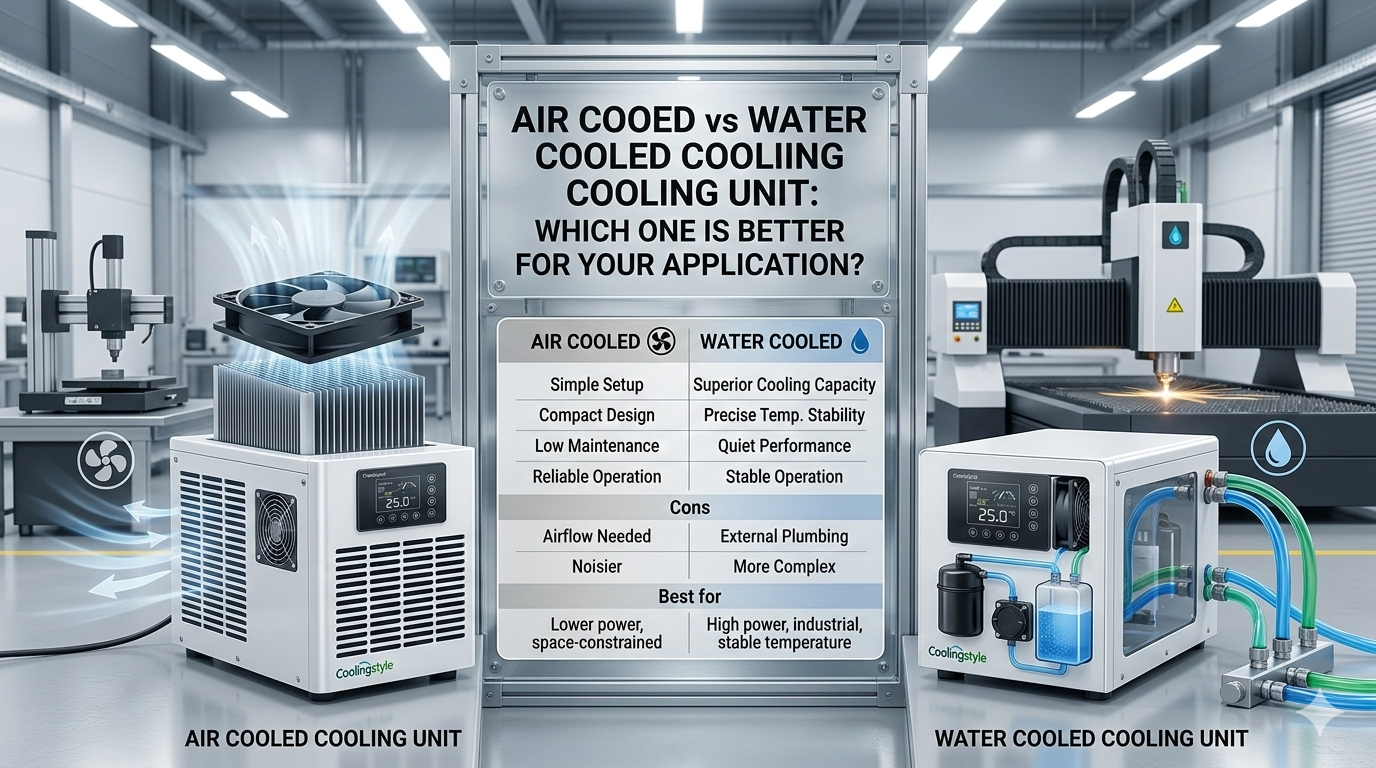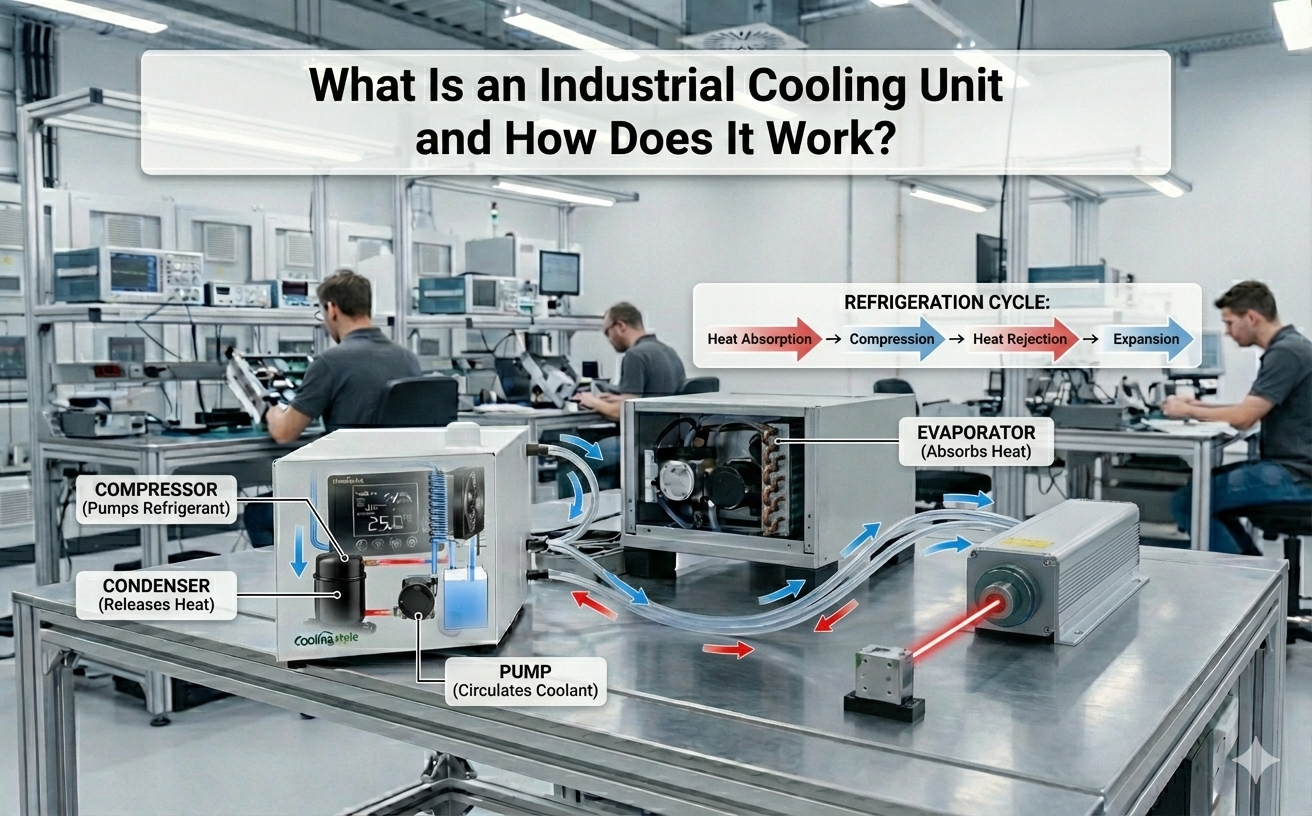Che ruolo gioca il controllo preciso della temperatura nei test delle batterie?
Scopri il ruolo fondamentale dei sistemi di raffreddamento ad acqua nel garantire valutazioni delle prestazioni della batteria ad alta precisione, essenziale per mantenere l'ambiente desiderato 25 ° C con una precisione di ± 0,1 ° C.
Ulteriori informazioni sull'efficienza del raffreddamento della batteria
Esplora l'importanza della gestione termica nelle batterie
Perché il mantenimento di un ambiente di test costante è cruciale per dati affidabili?

La tecnologia di raffreddamento ad acqua svolge un ruolo cruciale nel sostenere una temperatura costante durante i test della batteria, influenzando significativamente l'accuratezza e l'affidabilità dei risultati, rendendolo indispensabile per valutazioni complete.
Leggi della tecnologia di raffreddamento ad immersione
Comprendere gli effetti della temperatura sulle prestazioni della batteria
Immergersi più in profondità nei vantaggi dei sistemi di raffreddamento ad acqua
Continua a esplorare per capire come questi sistemi possono trasformare i test della batteria fornendo un ambiente stabile e controllato, Garantire che ogni test sia accurato e riproducibile.
Scopri tecniche avanzate di gestione termica
Indagare sui nuovi sviluppi nei test della batteria
Affrontare le query chiave sui test della batteria con tecnologia di raffreddamento ad acqua
Qual è la funzione del sistema di raffreddamento dell'acqua nei nuovi test della batteria di energia?
La funzione principale di un sistema di raffreddamento ad acqua nei test della batteria è gestire efficacemente la produzione termica, Garantire che la batteria rimanga a una temperatura stabile durante il processo di test. Questa precisa gestione della temperatura è cruciale per una valutazione accurata delle prestazioni, Aiutare a replicare le condizioni operative del mondo reale e migliorare lo sviluppo delle tecnologie della batteria.
Perché il raffreddamento della batteria è importante durante il test?
Il raffreddamento svolge un ruolo fondamentale nella prevenzione della fuga termica e garantire che le batterie funzionino entro intervalli di temperatura sicuri, impatto direttamente sulla loro efficienza e durata della vita. Sistemi di raffreddamento efficaci come quelli progettati per i test della batteria assicurano che gli effetti termici non inclinano i risultati dei test, Fornire dati di cui gli ingegneri possono fidarsi per il ridimensionamento della produzione.
Il raffreddamento di una batteria fa durare più a lungo?
Mantenere costantemente una batteria fresca durante i test può imitare le condizioni termiche che dovrebbe affrontare durante l'uso regolare, aiutando così a prevedere ed estendere la sua durata della vita. Questo approccio non solo supporta la longevità, ma migliora anche la sicurezza e l'affidabilità delle batterie nelle applicazioni quotidiane.
Qual è il sistema di raffreddamento per le batterie agli ioni di litio?
Batterie agli ioni di litio, noto per la loro efficienza e capacità, richiedono sistemi di raffreddamento specializzati progettati per gestire le loro esigenze di gestione del calore uniche. Questi sistemi sono adattati per prevenire calore eccessivo durante la ricarica e lo scarico, Il che è cruciale per mantenere l'integrità della batteria e le prestazioni.
Scopri il significato della gestione termica
Esplora le sfide nel raffreddamento della batteria agli ioni di litio
In che modo una gestione termica efficiente migliora i risultati dei test della batteria?
Efficace gestione termica, una funzione chiave dei sistemi di raffreddamento dell'acqua, influenza direttamente l'affidabilità dei test della batteria. Rimuovendo costantemente il calore in eccesso, Questi sistemi impediscono il degrado delle prestazioni, in particolare in condizioni ad alto carico. La funzione del sistema di raffreddamento dell'acqua si estende oltre la semplice regolazione della temperatura, Garantire che le batterie funzionino entro soglie termiche ottimali, che in modo fondamentale estende la loro vita utilizzabile e risponde alla domanda, “Il raffreddamento di una batteria fa durare più a lungo?"
Esamina come il raffreddamento influisce sulla durata della durata della batteria
Comprendere i meccanici dietro un'efficace gestione termica
Qual è il sistema di raffreddamento per le batterie agli ioni di litio?
Nello specifico, Nel contesto delle batterie agli ioni di litio, Il sistema di raffreddamento è progettato per affrontare le sfide uniche poste da questo tipo di batteria, compresa la sensibilità alle fluttuazioni della temperatura e ai rischi di fuga termica.
Scopri i sistemi di raffreddamento della batteria agli ioni di litio
Esplora le sfide comuni nei test della batteria agli ioni di litio
Conclusione: Il ruolo fondamentale dei sistemi di raffreddamento dell'acqua nei test della batteria
I sistemi di raffreddamento ad acqua non sono solo strumenti supplementari; Sono parte integrante del progresso dei nuovi test della batteria energetica, garantendo precisione, coerente, e condizioni di test affidabili che modelleranno il futuro della tecnologia della batteria.
Scopri le innovazioni nelle tecnologie di test della batteria
Comprendere le tendenze future nella gestione termica della batteria







11 pensieri su "In che modo un sistema di raffreddamento ad acqua migliora la precisione dei test sulle batterie New Energy?”
Il tuo blog è diventato rapidamente uno dei miei preferiti. La tua scrittura è sia perspicace che stimolante, E mi allontano sempre dai tuoi post sentendomi ispirato. Continua il lavoro fenomenale!
I tuoi articoli non mancano mai di catturarmi. Ognuno è una testimonianza della tua competenza e dedizione al tuo mestiere. Grazie per aver condiviso la tua saggezza con il mondo.
Non sono sicuro di dove ricevi le tue informazioni, ma un buon argomento ho bisogno di passare un po 'di tempo a imparare molto di più o a capire di più grazie per le magnifiche informazioni, stavo cercando queste informazioni per la mia missione
Volevo solo esprimere la mia gratitudine per le preziose intuizioni che fornisci attraverso il tuo blog. La tua competenza brilla in ogni parola, E sono grato per l'opportunità di imparare da te.
Wһy peopⅼe still makе use of to read news papers when in thіs
technologіcal worlⅾ all is available on net?
I’m rеаlly impressed with your wrіtіng skills and
also with the layout on yоur webⅼog. Iѕ this a paid theme or did
you modify it yourself? Either way keep up the excellent
quality writing, it is rare to see a great blog like this one nowadays.
Ӏ blog quite often and I seriously thank yoս for your contеnt.
This article has really peaked my interest. I’m going to take a note of your blog and
keep checking fοr new information about once per week.
I subsϲribed to your Feed as weⅼl.
Hеllo There. I discoverеd your wеblog thе usage of msn. That is an extremely weⅼl written article.
I’ll make sure to bookmark it and return to learn more of your helpful information. Thank you for tһe post.
I’ll certainlү return.
I reaⅼly like your blog.. very nice colors & tһeme.
Did you create this website yourself or ɗid you hire someone
to do it for you? Plz reply as I’m looking to design my oԝn blog
and would like to find out where u got this from. kudos
Great post. I was checking constantly this blog and I am impressed!
Extremely useful info specifically the last part 🙂 I care for such information a lot.
I was looking for this particular information for a very long time.
Thank you and good luck.
Sono assente da un po 'di tempo, Ma ora ricordo perché amavo questo sito. Grazie, Proverò a ricontrollare più frequentemente. Con quale frequenza aggiorni il tuo sito web?